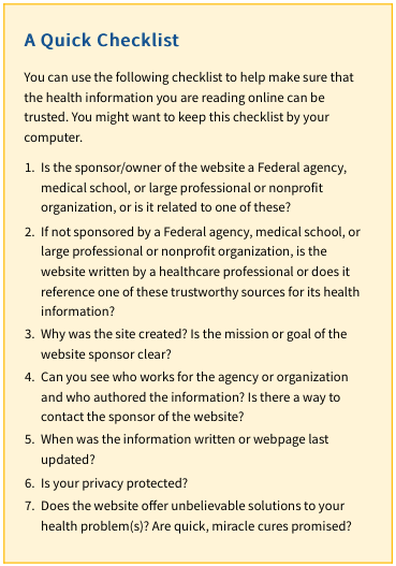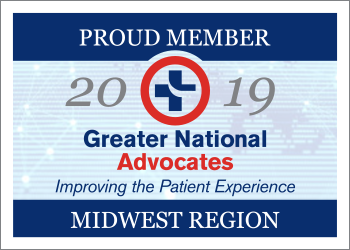 “My doctor put me on XYZ medication? Do you think I should be taking it?” “My 3 year-old has a rash and is throwing up. My doctor said to bring him to the office. What do you think I should do? “My dad sometimes seems confused and sometimes doesn’t. Does he have Alzheimer’s disease?” The above are simplified versions of actual posts I have seen on community Facebook groups. Then 50-100 people respond with their opinion. While these groups are useful for many things, the people responding are not medical experts — and if they are health care professionals, they do not know all the specifics of your situation. If you want credible health information, you need to go to credible health sources to get it. So, what is a “credible health source?” Your doctor. You might not like what your doctor has to say, or you may not feel the information you get from your doctor is complete, easy to understand, or right for you, but your doctor/health care provider should be a credible source of health information. If you don’t feel that way, it may be time to try a new doctor. SOME sites on the Internet. Not all. How do you know the difference?
Comments are closed.
|
AuthorWrite something about yourself. No need to be fancy, just an overview. Archives
February 2024
Categories |


 RSS Feed
RSS Feed



